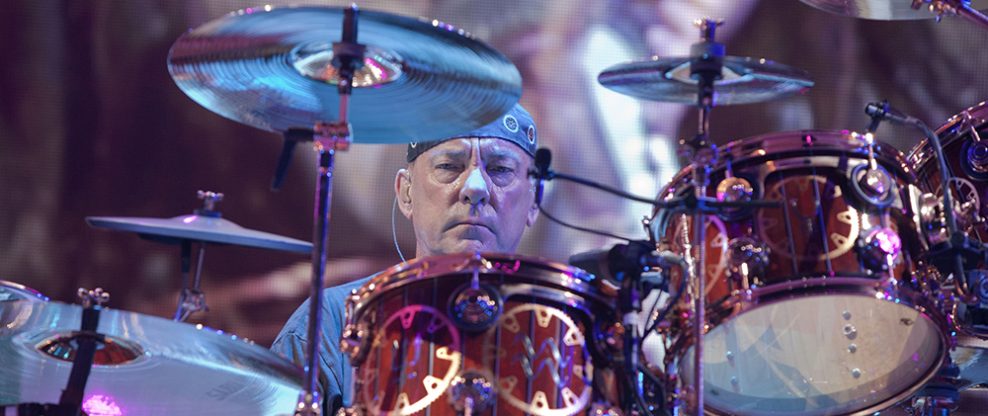SANTA MONICA, CA (CelebrityAccess) — Neil Peart, the Canadian drummer, and lyricist for the progressive rock legends Rush, died on Tuesday in Los Angeles. He was 67.
A spokesperson for Peart’s family told Rolling Stone that Peart had been quietly battling brain cancer for the past three years.
“I’ve covered Rush for most of my career as a music industry journalist starting with seeing them perform at The Coffin youth club in north Toronto before they started recording. Neil Peart wasn’t as yet in the band then but was recruited soon afterward. Quite a change in the band that led to their breakthrough and International following. While Neil didn’t give many interviews while in Rush he did talk to me several times on his solo projects. He was impressed that I’d interviewed Buddy Rich whom he had recorded a tribute album. Neil and I occasionally see each other socially over the years and he always was gracious and frankly very polite. A confession. Seeing Rush perform live I tended to watch Neil play behind the drum set. He was one of the finest drummers in rock music. The best of the best,” noted veteran Canadian journalist and CelebrityAccess senior editor Larry LeBlanc.
Peart was one of the most recognized drummers in modern musical history, drawing inspiration not only from established rock drummers such as Keith Moon and John Bonham but from the world of jazz as well, with influences such as Buddy Rich and Gene Krupa.
A native of Hamilton, Ontario, Peart’s first foray into music was with the piano but he quickly found his true metier when his parents bought him a drumset when he was 13.
After graduating high school, Peart traveled to London where he hoped to find work as a musician but returned to Canada after two years and little success.
Upon returning, he met the members of a local Southern Ontario rock band Rush and successfully auditioned to join the group, replacing John Rutsey on the drums. Peart performed his first gig with the band at Civic Arena in Pittsburgh, Pennsylvania on August 14th, opening for Uriah Heep and Manfred Mann.
After joining the group, Peart became the primary lyricist for the band, bringing his enthusiasm for science fiction, mythology, and Ayn Rand’s Objectivist philosophy alive in musical form, starting with their 1975 album “Fly By Night,” which marked the band’s transition from blues-rock to a progressive rock sound.
Peart also wrote the lyrics to the band’s breakthrough hit “2112,” which proved to be a much needed shot in the arm after the dismal reaction of fans to “Caress of Steel.”
In 1997, just as Rush was concluding their “Test for Echo” tour, Peart’s 19-year-old daughter Selena Taylor was killed in a car accident, followed ten months later by the loss of his wife of 23 years Jacqueline Taylor to cancer.
Following the personal tragedy, Peart took a hiatus from the band, and toured North and Central America extensively on a motorcycle, a trip he would later chronicle in the book “Ghost Rider: Travels on the Healing Road.”
The book was one of seven that Peart would write. Other books include “The Masked Rider: Cycling in West Africa,” which recounted Peart’s bicycle tour of Central Africa, and Clockwork Angels, a sci-fi book he co-wrote with Kevin J. Anderson.
Peart later remarried after meeting photographer Carrie Nuttall.
Peart rejoined his former compatriots in Rush in 2002 for their “Vapor Trails” tour and continued to perform with the group until 2015 when he announced his retirement, citing arthritis. The band’s final performance was at The Forum in Inglewood on August 1st, 2015.
Neil received numerous accolades over the course of his long and storied career, including being inducted into the Rock & Roll Hall of Fame in 2012 with the other members of Rush. He was also the youngest drummer to join Modern Drummer magazine’s Hall of Fame when he was inducted in 1983.
Check out Neal Peart performing one of his legendary drum solos below:





























